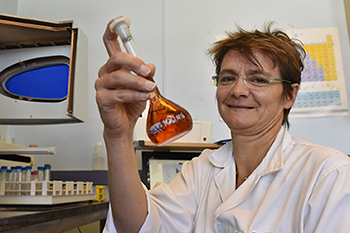Latest News Archive
Please select Category, Year, and then Month to display items
26 November 2020
|
Story Leonie Bolleurs
![]()
Mind Matters is a first for the UFS. It is a mental-health publication for students aimed at highlighting what matters most when it comes to your mind, life, and well-being. Some sections share how individuals in the top echelons of the UFS take care of their minds. Other sections focus on how to support your grey matter (i.e. your brain) and, consequently, improve your general functioning. Some parts discuss matters related to careers, well-being, finance, and self-development. We also provide news and resources that might matter to you.
Whatever your fancy, Mind Matters focuses primarily on why the health of your mind matters. Our minds and brains are the most powerful intelligence or apparatuses on the planet. A power like this needs to be wielded wisely, otherwise we may suffer much from our own neglect of our mental health. It’s not always easy, but it is important!
Mind Matters was possible due to the cumulative contributions, inputs, and work of numerous UFS professionals, especially within
Student Affairs. We are grateful and proud of each person involved. We endeavour to honour these efforts by continually improving and developing Mind Matters. Your feedback and voices are most welcome and will continue to inform what we do next.
UFS Ground Studies Laboratory receives accreditation to international standard
2016-03-18

Lore-Mari Deysel, Deputy-Director of the institute for Groundwater Studies.
Photo: Charl Devenish |
The Institute for Groundwater Studies (IGS) Laboratory at the University of the Free State is on equal footing with international testing labs. With its accreditation in March 2016 by SANAS (South African National Accreditation System), the IGS Laboratory now officially meets global standards.
Quality of water
The IGS Laboratory mainly analyses the quality of water samples. When it was originally established in 1989, the lab’s central function was to conduct testing for researchers at the institute itself. “After the public and water boards realised their need to analyse water samples, the IGS Laboratory expanded to deliver a service to these clients,” says Lore-Mari Deysel, Deputy-Director of the institute.
Since suppliers and regulatory authorities will not accept test or calibration results from a lab that is not accredited, the IGS initiated the accreditation process.
Accreditation to international standard
In order to be deemed technically competent and able to receive accreditation, labs must meet the ISO/IEC 17025 standard. ISO/IEC 17025 was first issued in 1999 by the ISO (International Organization for Standardization) and the IEC (International Electrotechnical Commission).According to Deysel, this is the single most important standard for calibration and testing laboratories around the world.
“Laboratories that are accredited to this international standard have demonstrated that they are technically competent and able to produce precise and accurate test and/or calibration data. Furthermore, it demonstrates that the university has the capacity to supply valuable and reliable services alongside the academy,” Deysel says.